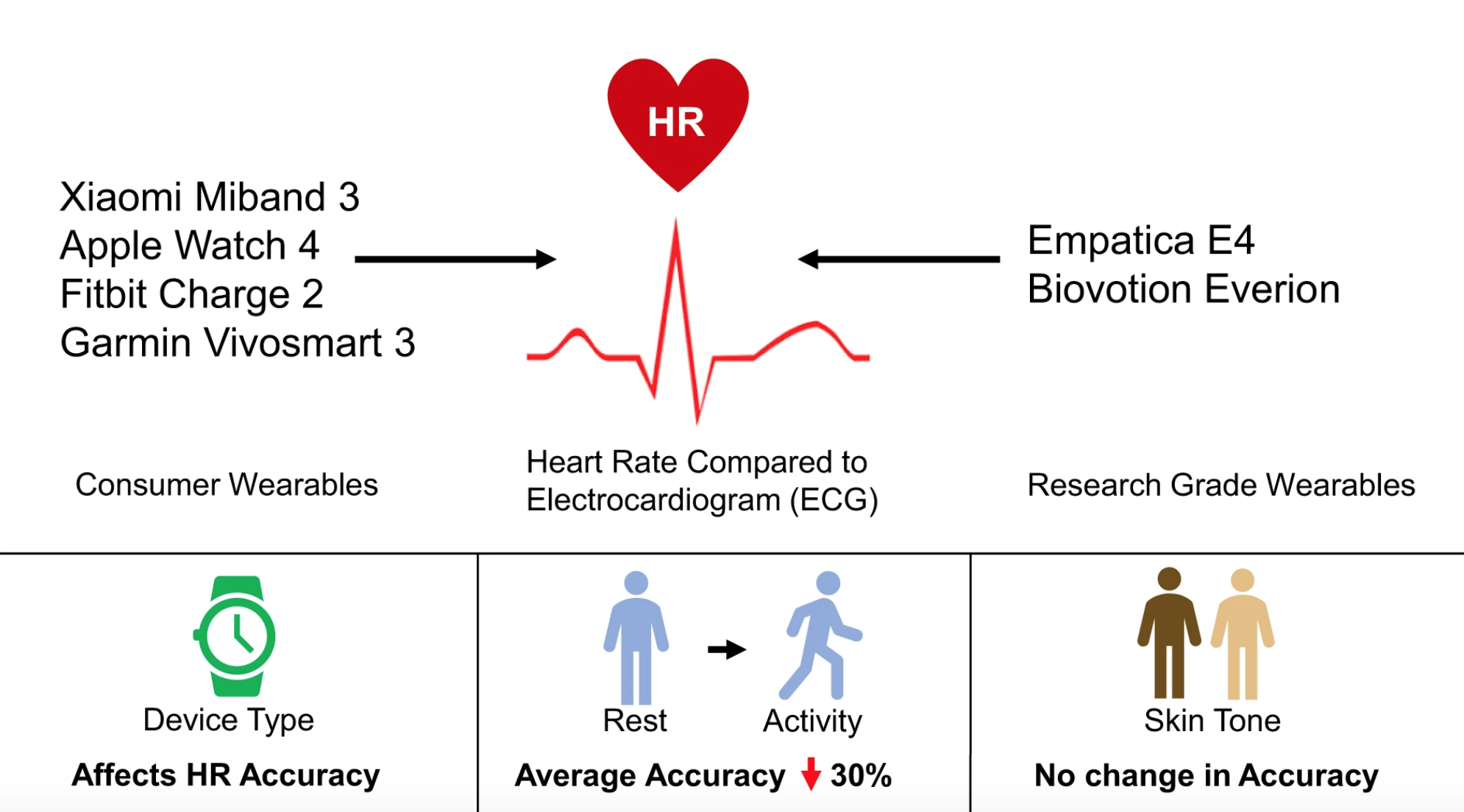Wearables are ubiquitous in today’s society. Such devices have evolved in their capabilities from step counters to devices that measure calories burnt, sleep, and heart rate. It’s pretty common to meet people using a wearable or two to track their fitness goals. However, a big question remains unanswered. How accurate are these wearable devices? Researchers from the Big Ideas Lab evaluated a group of wearables to assess their accuracy in measuring heart rate.
Unlike other studies with similar intentions, the Big Ideas Lab specifically wanted to address whether skin color had an effect on the accuracy of the heart rate measurements, and an FDA-cleared Bittium Faros 180 electrocardiogram was used as the benchmark. Overall, the researchers found that there was no difference in accuracy across skin tones, meaning that the same wearable will measure heart rate on a darker skin-toned individual the same as it would on a lighter skin-toned.
And there’s a silver lining if you’re an Apple user. The Apple Watch performed consistently better than all other devices with mean errors between 4-5 BPM during rest and during activity, unless you’re breathing deeply, which threw the Apple for a loop.
I would love to have seen rings also included to be compared against wrist-worn devices.
See Reliability Check: Consumer And Research-Grade Wrist-Worn Heart Rate Monitors
Wearables are ubiquitous in today’s society. Such devices have evolved in their capabilities from step counters to devices that measure calories burnt, sleep, and heart rate. It’s pretty common to …

